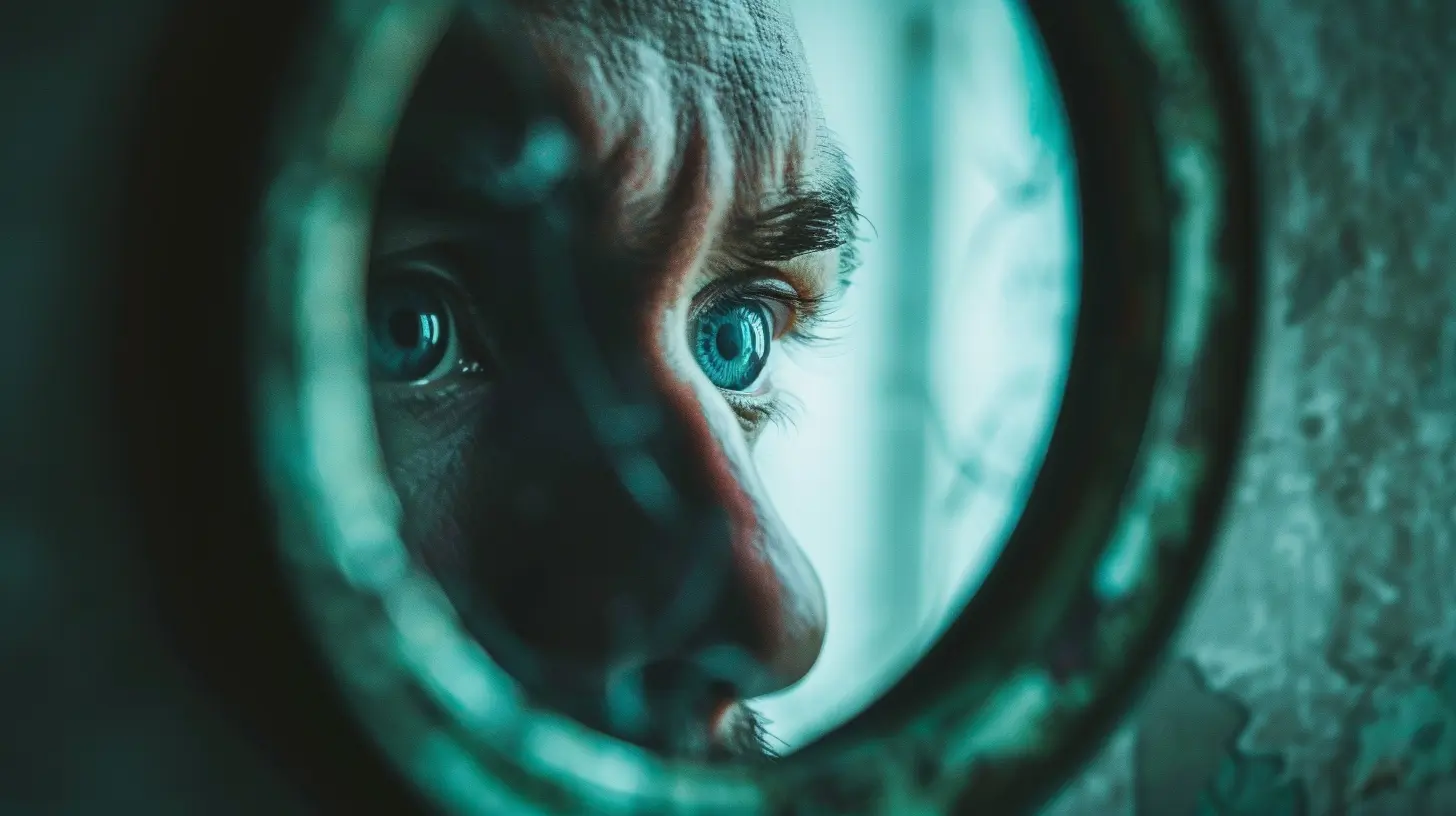Body Dysmorphia: Understanding the Mental Struggles Beyond the Mirror
5 July 2025
We’ve all had those moments—standing in front of the mirror, feeling a little insecure about our appearance. Maybe you’re fixating on a pimple that no one else even notices or worrying about your hair not looking quite right. It’s normal to have off days like that. But what if those feelings didn’t go away? What if you couldn’t stop thinking about what you perceive as flaws, even when others tell you there’s nothing wrong? For some people, this isn’t just an occasional slip in confidence—it’s a daily battle.
This is the reality for individuals with body dysmorphic disorder (BDD), a mental health condition that goes far beyond simple vanity or insecurity. Let’s dive deeper into the world of body dysmorphia to truly understand the mental struggles that lie beyond the mirror.

What is Body Dysmorphic Disorder (BDD)?
Body dysmorphic disorder (BDD) is a mental health condition where someone becomes obsessively preoccupied with perceived flaws in their appearance. These flaws are often minor or even nonexistent, but the individual views them as significant and highly distressing. A person with BDD might spend hours in front of the mirror every day, scrutinizing what they see as imperfections. They might avoid social situations out of fear that others will notice these perceived flaws.It’s important to clarify that BDD is not the same as just being insecure or self-conscious every once in a while. Everyone has days where they feel less confident about their looks, but for someone with body dysmorphia, these feelings are intense, persistent, and disruptive to daily life.
A Closer Look at the Symptoms
BDD often manifests in various behaviors and thought patterns that can severely impact someone’s quality of life. Here are some common symptoms:- Excessive grooming: Spending hours each day trying to fix or cover up perceived flaws.
- Avoidance of mirrors: While some people may constantly check themselves in the mirror, others may go to extreme lengths to avoid seeing their reflection.
- Obsessive comparison: Constantly comparing their appearance to others, often feeling like they come up short.
- Seeking reassurance: Frequently asking others for validation or reassurance about their appearance, though this rarely soothes their distress.
- Camouflaging: Wearing excessive makeup, specific clothing, or using certain angles to hide the perceived flaws.
- Avoiding social situations: Fear of being judged for their appearance can lead to avoiding friends, family, or public outings.
But it’s not just the behavior that defines body dysmorphia; it’s the mental anguish that these actions stem from. Many people with BDD experience anxiety, depression, and even suicidal thoughts due to their fixation on their appearance.

What Causes Body Dysmorphia?
Like many mental health conditions, body dysmorphia doesn’t have a single cause. Instead, it’s often a combination of factors that contribute to the development of BDD. Let’s break down some of the potential causes:1. Genetic Factors
Research suggests that if someone in your family has BDD or another mental health disorder, you may be more likely to develop it as well. There may be a genetic predisposition that makes certain individuals more susceptible to obsessive thoughts about their appearance.2. Brain Chemistry
Studies have shown that abnormalities in brain structure and function, particularly in areas related to processing visual information and emotional regulation, could play a role in body dysmorphia. Certain neurotransmitters, like serotonin, may also be involved.3. Environmental Influences
Cultural and societal pressures can’t be ignored. We live in a world saturated with images of “ideal” beauty—whether in magazines, on social media, or in movies. The constant bombardment of unrealistic standards can contribute to feelings of inadequacy. For individuals already prone to perfectionism or self-criticism, this can be a recipe for disaster.4. Trauma or Bullying
Past experiences of bullying, particularly about one’s appearance, can be a significant trigger for body dysmorphia. If someone was teased for their weight, skin, or any other physical characteristic, it can lead to a lifetime of insecurity and obsession over those features.
The Emotional Toll of Body Dysmorphia
We’ve talked about the behaviors and causes of BDD, but what often goes unnoticed is the emotional toll it takes on someone’s life. Living with body dysmorphia isn’t just about worrying how you look—it’s about the deep, often unbearable emotional pain that comes with it.Imagine waking up every day and the first thought that crosses your mind is, “I’m ugly.” You spend hours obsessing over a feature that no one else even notices. Friends tell you you’re overreacting, but that doesn’t stop the thoughts from gnawing at you. You cancel plans because you don’t want anyone to see you. You lose sleep, you lose joy, and you lose confidence.
This constant cycle of self-criticism, social withdrawal, and emotional distress can lead to severe depression. Many people with BDD also experience anxiety disorders, often linked to social situations or the fear of being judged. The emotional burden can be overwhelming, which is why people with body dysmorphia are at a higher risk of self-harm and suicidal ideation.

How is Body Dysmorphia Diagnosed?
Diagnosing body dysmorphic disorder isn’t always straightforward, especially because individuals with BDD may not recognize that their concerns about their appearance are irrational. They often seek help from dermatologists or plastic surgeons instead of mental health professionals, hoping to “fix” their perceived flaws.To be diagnosed with BDD, a mental health professional will generally look for the following signs:
1. Preoccupation with appearance: The individual spends an excessive amount of time (often hours) thinking about a specific feature they believe to be flawed.
2. Significant distress: Their preoccupation causes significant emotional or mental distress.
3. Impairment in functioning: The individual’s obsession with their appearance interferes with their ability to function, whether at work, school, or in social settings.
If these symptoms are present, the person may be diagnosed with BDD, and a treatment plan can be developed.
Treatment for Body Dysmorphic Disorder
The good news is that BDD is treatable, and many people can lead happier, more fulfilling lives with the right care. Treatment often includes a combination of cognitive-behavioral therapy (CBT) and medication.Cognitive-Behavioral Therapy (CBT)
CBT is one of the most effective treatments for BDD. It helps individuals identify and challenge the irrational thoughts and beliefs they have about their appearance. Through therapy, they can learn to reduce their compulsive behaviors, like mirror-checking or reassurance-seeking, and develop healthier ways of coping with their distress.Medication
In some cases, medications such as selective serotonin reuptake inhibitors (SSRIs) may be prescribed. These medications can help regulate serotonin levels in the brain and reduce the obsessive thoughts and compulsions associated with BDD.Support Groups
Talking to others who are going through the same struggles can be incredibly empowering. Support groups, whether in person or online, can offer a sense of community and understanding that individuals with BDD might not find elsewhere. Knowing that you're not alone in your struggle can be a powerful motivator for recovery.
The Role of Social Media and Society
It’s impossible to discuss body dysmorphia without mentioning the role that society and social media play in shaping our perceptions of beauty. We live in a culture that often equates worth with appearance. Perfectly curated Instagram feeds, airbrushed magazine covers, and filters that alter our faces have created an almost unattainable standard of beauty.For someone with body dysmorphia, this overwhelming pressure can exacerbate their feelings of inadequacy. Constantly comparing themselves to others, they may feel like they’ll never measure up. It’s important for us to recognize the toxic beauty standards that are perpetuated and to foster a culture of body acceptance and self-love.
Learning to See Beyond the Mirror
If you or someone you know is struggling with body dysmorphic disorder, remember that help is available. BDD isn’t something that can be “fixed” overnight, nor is it a sign of vanity or superficiality. It’s a serious mental health condition that requires understanding, compassion, and proper treatment.The mirror reflects only the surface—it doesn’t show the depth of who we are. Learning to see beyond the mirror, beyond the perceived flaws, is a journey, but it’s one worth taking. With the right support, people with body dysmorphia can start to reclaim their lives and see themselves for who they truly are, rather than just what they think they see.
all images in this post were generated using AI tools
Category:
Body ImageAuthor:

Eliana Burton
Discussion
rate this article
1 comments
Murphy Reilly
Body dysmorphia is a profound mental challenge that deserves empathy and understanding; let's prioritize awareness and support for those affected.
July 19, 2025 at 4:49 AM

Eliana Burton
Thank you for highlighting the importance of empathy and awareness. Supporting those with body dysmorphia is crucial in fostering understanding and healing.


